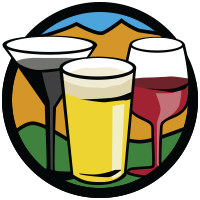How Space Tech from Apollo Makes Beer Better
Mike Laur - July 17, 2019
50 years ago, when Apollo astronauts landed and swaggered about on the Moon, there wasn't much craft beer. Tang breakfast drink was all the rage, and there weren't any microcomputers. New 1969 automobiles had seatbelts - sold as options.
The goal of getting to the moon and back before the end of the decade had been accomplished, and the whole world united for a few moments to watch and wonder at history being made. To get there and back, scientists, engineers, and mathematicians developed new tools, technology and ideas, and in the process improved life here on Earth.
Space Technology is all around us. Cellphones, food, automobiles, healthcare, banking, video games, clothing - you name it, it’s probably got some form of technology originally developed for use in space that makes it better. NASA’s original charter in 1958 mandated that technology transfer would be part of future space exploration missions, and we’re all better off because of it.
Look closely at your beer, and you might see a rocket inside - or at least a significant amount of space technology bubbling about. For example:
- GPS is used by farmers to grow better barley, and earth imaging helps monitor crop and moisture conditions to improve harvests.
- Advanced filtration techniques developed for clean water in space often help purify water that gets turned into beer. Plant-based wastewater treatments, used by New Belgium and other brewers, were originally developed for use during extended manned space missions.
- Orbital welding, perfected during construction of Apollo launch facilities, is used to fabricate the elaborate piping inside growing breweries around the world.
- Ultra-tiny, ultra-precise calibration spheres, originally manufactured in microgravity onboard orbiting spacecraft, are used to calibrate brewer’s yeast counting instruments - helping improve beer production and quality control.
- Photovoltaic panels, used to power operations at hundreds of breweries, were improved, perfected, and improved again through decades of space-based mission needs.
- Air curtains - another space spinoff - are used in retail stores to keep coolers cool and cold ones ready to buy.
- Those 36 channels of weekend sporting events you see at your favorite sports bar? They come from geosynchronous satellites, 23,000 miles far above the nearest football or baseball field.
Cheers to Space Technology!
Space technology really is everywhere, and it comes at a bargain price. Less than one-half of one percent of our national budget is spent on space exploration. And the really funny thing is that all of the money is spent right here on earth. Sure you have your LockMarts, your Boeings, your NortrhropGrummans that get hefty cuts of the space budget pie. But you’ve also got your up-and-comers: Sierra Nevada, Space-X, Virgin Galactic. While the USA and Russia have been dominant for decades, the whole world is blazing into space today - China, India, France, Germany, Japan, and dozens of others are launching into orbit and beyond.
And no matter who figures out a better way to explore space, we all benefit in thousands of ways, big and small. Public safety, transportation, medicine, communication, energy - space technology makes just about everything better.
In making our Beer, Wine, & Spirit Drinker’s Guide to Colorado, for instance, we used data captured from SRTM radar onboard the Space Shuttle Endeavour (STS-99 in February 2000) to improve the accuracy and fine detail of our map graphics. And take a look at our 14er list. Pikes Peak, once measured at 14,110 feet tall, today comes in at 14,115 feet tall. It didn’t grow. Teams of geodeticists used GPS satellite navigation systems to re-measure famous geographic features around the world, and today we use the updated, highly-accurate info in our table of 14ers.
For using space technologies like GPS and space-borne radar data, the Beer, Wine, & Spirit Drinker’s Guide to Colorado is officially recognized as a Space Imagination Product by the Space Certification Program of the Space Foundation. Cool, huh?
Cheers - AGAIN! - to Space Technology!
You can learn more about how space technology works for us everyday here on earth by visiting Space Foundation’s website...
You can learn more about how SRTM data is being enhanced and used around the world by clicking on this link to JPL/NASA...
You can buy your very own piece of space technology - and get FREE BEER - by clicking here, or by visiting one of our retailers statewide.
